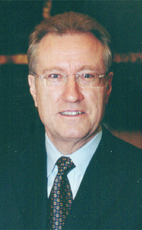Mr. Speaker, over the last 50 years under the General Agreement on Tariffs and Trade we have made substantial progress in terms of the world trading system.
We have a system that is much more open, liberalized, clearer and with fairer rules than ever before. We have had substantial leadership from the United States and we continue to need that leadership.
We do not need the Americans to pull back into a protectionist mode. That will not serve their interests or anybody's interests. We do not need bills like the Helms-Burton bill wherein they start to take action against their friends, their neighbours and their major trading partners because they are trying to get at another country such as Cuba in this case.
We continue to protest that action. That is not leadership, but we still need their leadership in terms of having liberalized and clear rules based trading system.

